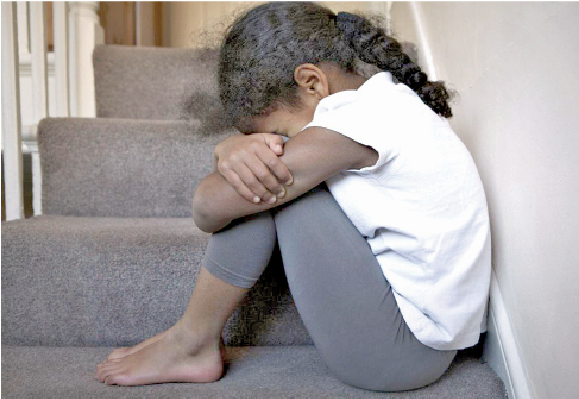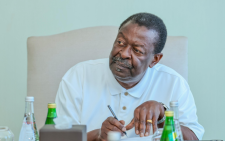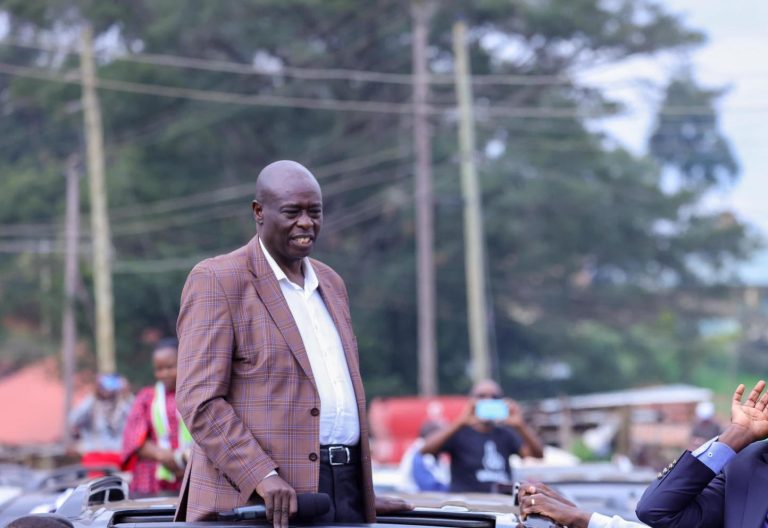Child sexual abuse is hard on parents, too

Early this year Esther Joyce (not her real name) noted that her nine-year-old daughter started faking illness to avoid going to school.
However, she treated this as a normal occurrence. It a point when she would beat her daughter every morning for her to go to school.
“I couldn’t understand the sudden change. Previously, she used to love school.At first, I thought she wanted to stay at home to watch cartoon. But I was wrong; there was more to that,” says the mother of three.
Esther says her daughter became withdrawn and would lock herself in her room. She also started skipping meals. This is when she realised that all was not well.
Struggling with guilt
After talking to her for weeks without getting to know what the problem was, her daughter finally decided to open up. She told her how a male teacher has been harassing her sexually by touching her vagina in school and even threatened her not to report him.
“I couldn’t believe my ears. I couldn’t stop blaming myself for not getting to the root of the matter early despite her sudden behaviour change,” she says.
According to World Health Organisation, child sexual abuse is the involvement of a child in sexual activity that he or she does not fully comprehend, is unable to give informed consent to, or for which the child is not developmentally prepared and cannot give consent, or that violates the laws or social taboos of society.
It involves forcing or enticing a child or young person to take part in sexual activities. The activities may involve physical contact, including assault by penetration (for example, rape or oral sex) or non-penetrative acts such as masturbation, kissing, rubbing and touching.
They may also include non-contact activities, such as involving children in looking at, or in the production of, sexual images, watching sexual activities, encouraging children to behave in sexually inappropriate ways, or grooming a child in preparation for abuse (including via the internet).
Esther says she didn’t know how to raise the issue with the teacher or school. To protect her daughter, she opted to transfer her to another school.
Kabii Thuo, a sociologist with interest in research of human behaviour says many times cases of child abuse go unreported because there is a lot of stigma and parents fear hurting their children with publicity of their misery.
Lack of evidence may also make some parents fear to report. “Other reasons are fear of reprisals coupled with ignorance of the law and the society’s capacity to execute and prosecute these issues with seriousness and thouroughness demanded,” he says.
Esther got her daughter a therapist to facilitate her healing and recovery. However, seeing her daughter go through all that took toll on her. “I devoted all my time and energy to support her through her healing, but deep down, I was hurting. I often struggled with extreme guilt,” she says.
Nikole Lim, founder Freely in Hope Organisation, a nonprofit organisation dedicated to restoring dignity of survivors of sexual violence through holistic education, says it is normal for a parent or caregiver to a child who has experienced sexual abuse to blame themselves.
If one doesn’t take good care of him/herself, the healing journey of both the abused and the caregiver might even take a bit longer.
She advises such parents to first stop laying the blame on themselves and concentrate on their healing too. “Sexual abuse is not only traumatic for the child, but for their families as well. But even as you care for your child, you also need healing as well.
Whatever you are feeling as a parent is totally valid. You are not a failure, and it is not your fault that your child was abused. In order to heal, you must extend grace and forgiveness to yourself every day,” says Nikole.
Kabii says sexual abuse is a big deal because it cuts across the physical, psychological, physiological and the social aspect and to some extent spiritual.
“It is multifaceted monster that requires a broad spectrum solution with time and patience. Be compassionate and empathetic whenever you are dealing with such a child.
I suggest you get therapy yourself before embarking on this journey because you might end up hurting the child further, albeit unknowingly,” says Kabii.
Nikole concurs. “Therapy is extremely important for yourself, your child, and anyone else in your home affected by the trauma. Through therapy, you will learn how to be present for your child and how to facilitate difficult conversations,” she says.
Helping your child
Kabii adds that since sexual abuse starts at the violation of innocence level before extending to physical one, one also need to restore the child back to the “factory settings.
”If they were dressed down verbally, start by affirming them and building confidence and assertiveness in them. “Children learn and they easily adjust. If they were inappropriately touched by a sex predator, educate them on the body senses and how this qualifies to be abuse,” says Kabii.
Since children healing from trauma may struggle with expressing their emotions appropriately, Nikole says that it is good to enforce trauma-informed discipline response.
This kind of response recognise that when a person feels consciously or unconsciously unsafe, the brain-body response interferes with decision-making and self- regulation.
“Children healing from trauma may struggle with expressing their emotions appropriately. This emotional turmoil may manifest in behavioural issues, relational issues, promiscuity, or withdrawal.
Understand that the negative behaviour is a response to extreme trauma. As they are trying to reconcile the abuse, physical discipline may confuse them,” she adds.
Therefore, avoid physical punishment because the child may retraumatise. You can strengthen trauma-informed discipline with constant positive reinforcement, encouraging your child to address their feelings with you while still being clear with the consequences of their behaviour. Being consistent will build trust with your child.











